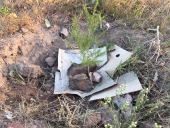




 1
1




Moderator, Treatment Free Beekeepers group on Facebook.
https://www.facebook.com/groups/treatmentfreebeekeepers/





 2
2




Seed the Mind, Harvest Ideas.
http://farmwhisperer.com

 1
1




Seed the Mind, Harvest Ideas.
http://farmwhisperer.com




Ken Peavey wrote:I'm thinking an electric arc in a fusion reactor has nothing whatsoever to do with permaculture, organic, or natural growing.
Seems to me the whole idea is still focused on maximizing production through mechanical processes rather than using holistic methods mimicking nature.
This arc process is simply a technology to substitute for the Haber-Bosch process. A more natural way to increase nitrogen availability would be to promote legumes.




 4
4




Vadim Fedorovsky wrote:But is the natural way feasible on as large of a scale as is needed to feed the world?




Eric Thompson wrote:
Vadim Fedorovsky wrote:But is the natural way feasible on as large of a scale as is needed to feed the world?
Sure, there is plenty of energy there - even a lot that is wasted. My apple trees run from a large scale fusion reactor and do just fine. In fact they would have trouble if this reactor didn't direct 99.99999999999% of its energy away from the planet...

 2
2




Vadim Fedorovsky wrote:
But is the natural way feasible on as large of a scale as is needed to feed the world?
Seed the Mind, Harvest Ideas.
http://farmwhisperer.com
 4
4




Vadim Fedorovsky wrote:
Please elaborate. I am not sure if I understand you completely. Your apple trees run from a large scale fusion reactor? What do you mean?
Freakin' hippies and Squares, since 1986




Community Building 2.0: ask me about drL, the rotational-mob-grazing format for human interactions.

|
girl power ... turns out to be about a hundred watts. But they seriously don't like being connected to the grid. Tiny ad:
Learn Permaculture through a little hard work
https://wheaton-labs.com/bootcamp
|

